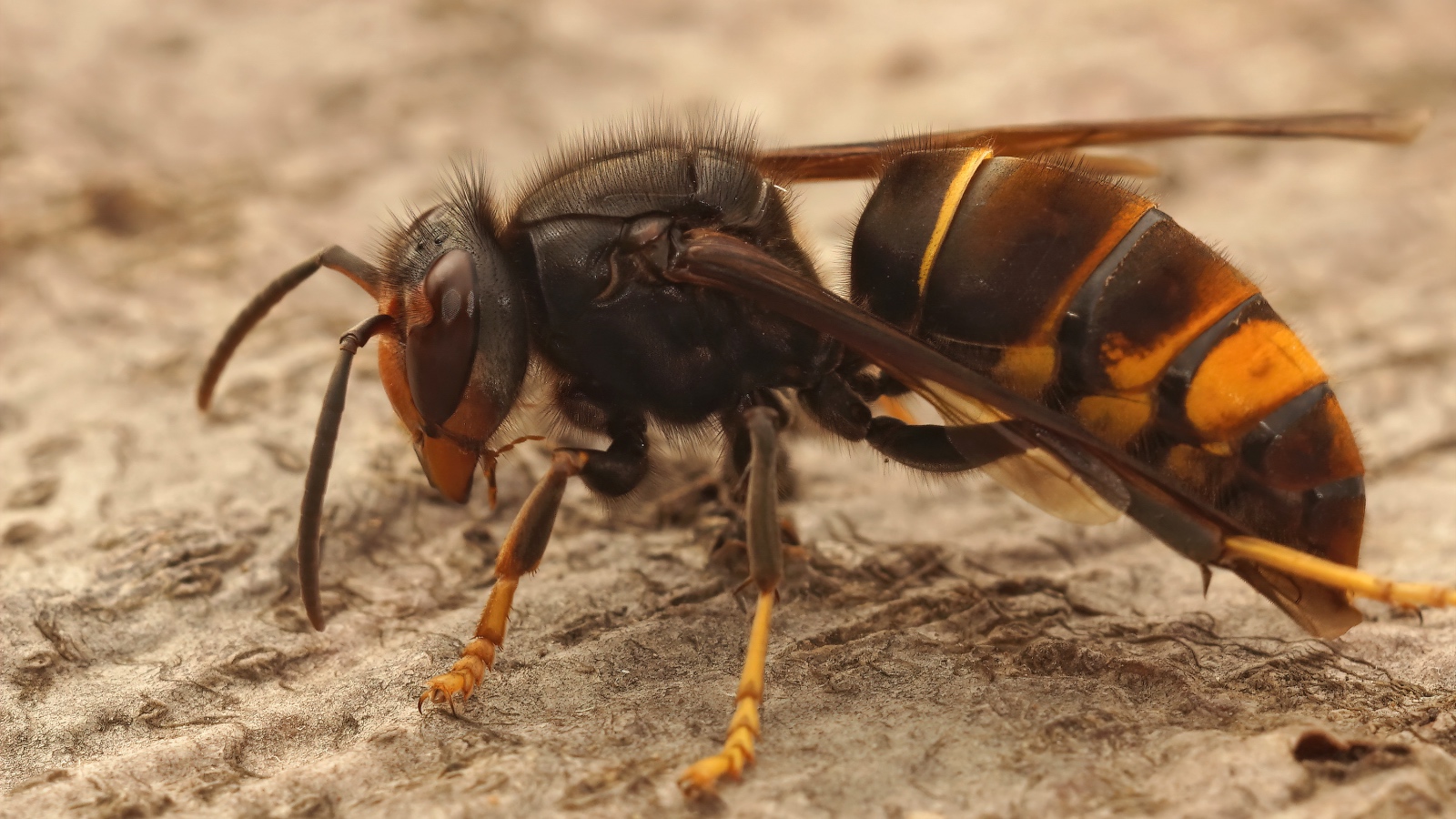
iStockphoto / Wirestock
When murder hornets were first discovered in North America back in 2019 there was a considerable amount of panic, fueled of course by its scary name. Now the cousin of the murder hornet has been discovered in the United States for the first time, the Asian hornet or yellow-legged hornet, and it feasts on honey bees.
The yellow-legged hornet is native to Southeastern Asia but is has already been documented in regions of Europe and the Middle East, and now for the first time it has been found in the United States.
On Tuesday, the Georgia Department of Agriculture announced the arrival of the yellow-legged hornet in southern Georgia, confirming the presence of this honey bee-eating hornet near Savannah. The report states this is the first time a live specimen has been documented in the United States.
Because this Asian predatory wasp feeds on honey bees, the potential ramifications of its arrival are severe. It has the potential to alter agriculture in the state of Georgia and in the United States in a worst-case scenario.
Agriculture Commissioner Tyler Harper told The Atlanta Journal-Constitution “If established, this invasive species could threaten the native pollinators in our state and negatively impact our agricultural industry as a whole.”
There have been confirmed fatalities from stings in Spain and France (6 recorded deaths), from anaphylactic shock.
Georgia news is sounding the alarm for anyone that spots the yellow-legged hornet in the Peach State:
These clever wasps seek out honey bees at their hives and attempt to wipe them out. Though they do also feed on insects other than just honey bees. Here they can be seen hunting honey bees:
Their nests can be massive with up to 6,000 yellow-legged hornets occupying a single hive, according to the AGR press release.
The state has set up an online reporting form. They are asking for photographs if anyone spots them so they can be identified remotely before a team is sent out to investigate and eradicate.
This species has already been found in France, Spain, Portugal, South Korea, and Japan. People in France have been hospitalized after being attacked by the wasps, though they are not considered to be aggressive until they sense their nest is in danger and they protect the nest.